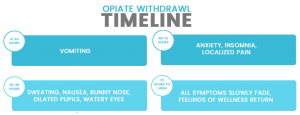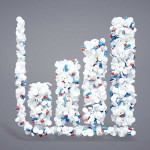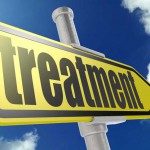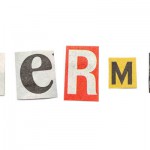Fentanyl Treatment and Rehab
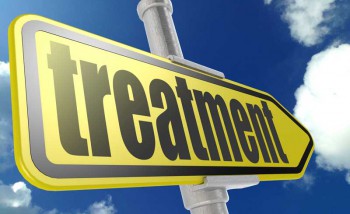
For those suffering with a Fentanyl addiction, or any kind of an addiction to an opioid, it can be a difficult addiction to overcome. Statistics regarding drug addiction show that those addicted to opioids have the lowest success rate in kicking the addiction and the most difficult path in recovery. However, learning more about different Fentanyl treatment and rehab options available can help those looking for addiction recovery services have a better chance at finally overcoming the opioid addiction. Keep reading to learn about the various Fentanyl treatment and rehab options available for those struggling with addiction.
What is Fentanyl and How is it used?
Before we get too far into the recovery part of a Fentanyl addiction, let’s first find out more about Fentanyl’s intended purpose and how it works on the body. Fentanyl is a prescription drug that goes by many names like Duragesic, and is used to help treat significant amounts of pain in patients undergoing surgery or coping with chronic pain. This synthetic opioid works just like other opioids including Morphine and heroin to attach itself to opioid receptors in the brain. These receptors control the central nervous system by creating feelings of happiness and euphoria to override the physical pain. These feelings are what causes the addiction to occur in many users. The user begins taking a higher dose of the drug to achieve these feelings of euphoria. However, addiction takes place, both sometimes physically as well as mentally, because the user becomes resistant to the original amount of the drug and has to use more to achieve the same high as before.
When this takes place, it becomes dangerous for the user to continue abusing the drug as the use can result in overdose and death. Fortunately there are several options available for those struggling with an opioid addiction.
Types of Treatment:
- Medical Assistance
- Outpatient services
- Rehab
- Holistic approach to sobriety
There are several medications that can be prescribed either in a rehabilitation-style environment or under a doctor’s supervision that can help the drug user cope with the side effects of a Fentanyl addiction and/or overcome the addiction by easing withdrawal symptoms. Naltrexone, methadone and buprenorphine are the most commonly prescribed medications to help assist in recovery from an opioid addiction.
Medications Used to Treat Addiction:
Naltrexone is an antagonist medication that works on an addict by preventing the opioids from activating their receptors in the brain. So even if the addict is still using, this drug can help counter the effects, which is why it is used to treat overdose and addiction. A new version of the drug, Vivitrol – originally an approved alcoholism treatment, is now being used to help users cope with an opioid addiction. This drug is perfect for those who do not have regular access to healthcare because its effects can last for weeks.
Next, Methadone is a synthetic opioid agonist that works by eliminating withdrawal symptoms and also helps the user by relieving drug cravings by acting on the same brain targets as other opioids like heroin, morphine, and opioid pain medications. It is one of the longest-used drugs and has helped treat opioid addiction for the past 40 years. However, Methadone must be dispensed through opioid treatment programs.
If the user is unable to attend a treatment program to receive methadone, Buprenorphine is a good option. Buprenorphine is a partial opioid agonist that can be prescribed by certain doctors in an office setting. Like methadone, it reduces drug cravings and is often well tolerated by the patients.
Outpatient services:
These services are similar to rehab in that these methods to overcoming drug addiction center around behavioral counseling services. These may be used in conjunction with medication like the ones listed above. However, there are times when the medication is unnecessary and regular counseling and support can help a person through recovery. Organizations like Narcotics Anonymous provide support needed for many addicts to get through recovery. Regular counseling in an outpatient style treatment program are effective for many of the “high-functioning” addicts who have been able to maintain employment and cannot leave a job to check into a rehab facility that would take 30 days or more to complete the program.
Rehab Centers:
Rehabilitation centers are one of the most commonly used methods for helping a user overcome a drug addiction. Rehab centers provide help from start to finish in the recovery process. Help includes aiding the user in going through withdrawal and detox symptoms under a doctor’s care, behavioral counseling services to help the user learn coping skills, mental strength, and physical recovery as well as the ability to reenter their lives clean and sober post recovery. However, many rehabilitation centers can seem unaffordable for some, which is why many addicts do not take advantage of the comprehensive rehabilitation programs many centers offer. Many programs have financial assistance opportunities, so it is still something those struggling should consider if possible.
Holistic approach to recovery:
Unlike the former methods mentioned, there are ways that some medical professionals that believe users can overcome an opioid addiction through a holistic approach. However, to truly embrace sobriety and recovery without medication, it is encouraged the user enter a rehabilitation facility that offers this type of withdrawal and detox process. The belief is that self-care, proper diet, exercise and mental support can be enough to get a person through an opioid addiction.
There are many different roads to recovery. The key is choosing the best option for each individual person. Be sure to do some shopping around to find the best option for you to begin your drug addiction recovery process.
Sources: MayoClinic.org, DrugAbuse.gov, Narconon.org, drugfacts.ca

